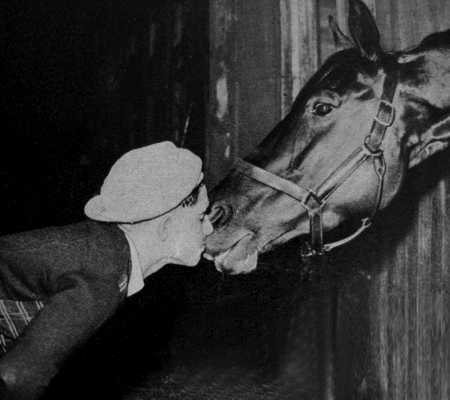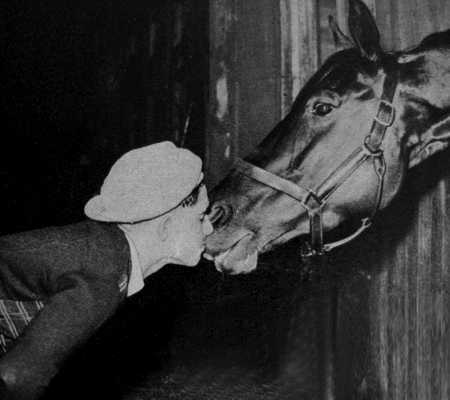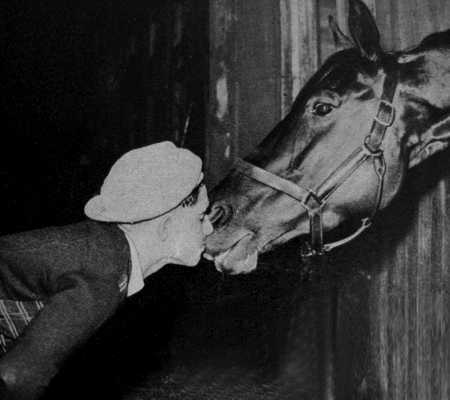|
Posted on Tue, Apr. 21, 2009
 John E. Oros | ‘Aurora Flash’ was leading jockey of 1939John E. Oros, who rode out of nowhere — well, actually Aurora, Ill. — to become for a time the nation’s leading jockey, died April 3 in Palm Harbor, Fla. He was 87 and lived in Palm Harbor. The cause was congestive heart failure, his son Thom said. In 1939, Oros was just 17 and in only his second year of professional racing when he overtook perhaps the most notorious jockey of the time, Don Meade, in number of victories to that point in the year. Meade, who won the 1933 Kentucky Derby on Brokers Tip, had been suspended for three years by the Florida Racing Commission for betting against his own mounts, He was reinstated in December 1938.
In the first 15 weeks of 1939, Meade won 91 races at two prominent Florida tracks: Hialeah and Tropical Park. In the same period, Oros, who was 5 feet 2 inches tall and weight about 105 pounds, rode an astonishing 105 winners at Aurora Downs and other Chicago-area tracks, as well as at the Fair Grounds in New Orleans and at the race course in Bowie, Md. Time magazine noted the feat, comparing Oros to Meade as ”an obscure fellow-peewee” who had “quietly displaced him as the leading jockey of 1939.” And although Meade eventually passed him again, Oros rode a total of 966 races that year, winning 162 times and earning $162,676 in purses. Oros was born in Aurora on Dec. 5, 1921. His father, whose name was also John, helped run a grocery store and for a time worked in the coal mines of West Virginia. He sent money home from that job but also relied on other resources. Thom Oros said his grandfather’s success as a bookmaker and bootlegger led the family into racing. By the time young John (who adopted the middle initial E. to distinguish himself from his father and was sometimes called Johnny) was in his teens, the family owned a stable of horses. He dropped out of school in the eighth grade and rode his first winner, a horse named Miss Balko, at the Aurora track in 1938. His riding career lasted until 1946 but was interrupted by World War II, during which he served in the Army in the Philippines. In addition to Thom, who lives in Maitland, Fla., Oros is survived by his wife of 61 years, Ellen; a brother, George, who was also a professional jockey, of Palm Harbor; another son, John, of Oswego, Ill.; and three grandchildren. Oros Bros. Inc., a saddlery business established by George Oros in 1947 and run by the two brothers for decades, is still in the Chicago area, operated by Buzz Oros, George’s son. Oros’ sudden success in 1939 earned him a nickname — the Aurora Flash — and the attention of reporters. ”There ain’t any mystery about me or my riding,” he said in an interview with Time. “I don’t use no special tricks. I don’t whisper no sweet words in the horse’s ear. I just sit up there and hang on.” |
#######
 John E. Oros, his horse Miss Balko, a kiss after winning a race 12 May 1938.
John E. Oros, his horse Miss Balko, a kiss after winning a race 12 May 1938.
Here is website link to OROS SADDLERY:









